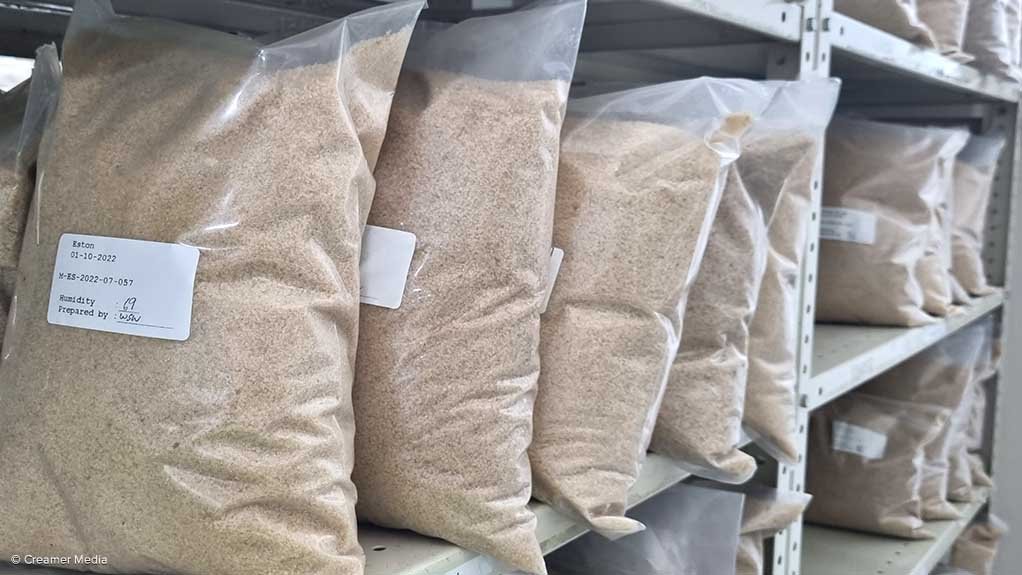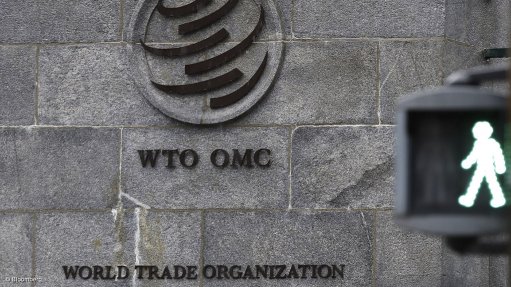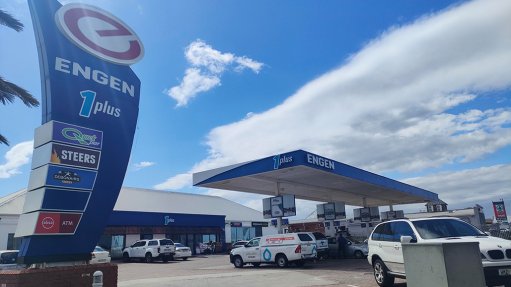Sugar industry making progress on implementing master plan


Raw sugar at Durban's sugar export terminal
Photo by Creamer Media's Marleny Arnoldi
The advent of the Sugarcane Master Plan has been a crucial intervention aimed at stabilising the sugar industry and putting it on an upward growth trajectory, especially as it has been impacted negatively by recent events, says the South African Sugar Association (SASA).
The ambitious plan has sought to ensure that 95% of sugar is locally procured and that local demand doubles from 150 000 t to 300 000 t by 2023.
SASA reports that the industry managed to restore 170 000 t of sugar demand in the local market, against a target of 150 000 t in Year 1 of Phase 1 of the Master Plan. Phase 1 of the plan comes to an end in March after three years.
Overall, Phase 1 was aimed at restoring 300 000 t of sugar demand in the local market over the three years, but this target will be missed by 20 000 t, come the end of March.
There are currently discussions on whether Phase 1 needs to be extended or whether industry should proceed with Phase 2.
SASA explains that the sector’s performance in meeting the targeted 300 000 t of sugar demand restoration, only restoring 280 000 t of sugar demand, was influenced by the floods in KwaZulu-Natal in April 2022, the civil unrest experienced in the province in July 2021, the Ukraine war throughout 2022 and its impact on supply chains and input costs, as well as the impact of loadshedding in South Africa.
The local market comprises the Southern African Customs Union (SACU) countries of Botswana, eSwatini, Lesotho, Namibia and South Africa.
The South African sugarcane industry produces about 18-million tonnes a year of sugarcane and two-million tonnes of refined sugar, much of which is exported into the SACU market.
The sugar industry supports about one-million livelihoods, employing 65 000 people directly and 270 000 indirectly. It generates about R18-billion of revenue a year, of which the cane growers’ share accounts for R11-billion.
It contributes about 0.27% to gross domestic product, with export earnings totalling about R3-billion a year.
SASA is aligned with the government's view that the long-term future of the sugarcane industry relies on restructuring the industry’s foundations and establishing diverse, globally competitive downstream value chains beyond refined sugar and molasses.
This long-term process will take three to five years to bear fruit. Therefore, SASA seeks to develop a long-term policy framework approach to sugar taxation that affords certainty and predictability in support of investment and planning.
To achieve this investment certainty and business predictability, SASA recommends that the Health Promotion Levy, or sugar tax, neither be increased nor expanded to include other products for the next three years.
SASA has implored government to show commitment to the industry and the network of people and communities its supports, including assisting with fast-tracking new sustainable industries that will create jobs and ensure that livelihoods of farmers are sustainable and future-proof.
“This needs time, investment and collaboration,” SASA CEO Trix Trikam states.
The overarching objective of the sugar industry is to pursue transformation policies that will ensure black farmers and industrialists are integrated thoroughly into a sustainable, diversified sugarcane value chain.
Down the line, the objectives would be to manage the restructuring of the industry to improve efficiencies and profitability.
“All stakeholders have a role in meeting these objectives and ensuring the sugar industry – and the million livelihoods it sustains – are not simply swept away or reduced to eking out a life lived in poverty and destitution,” Trikam notes.
Meanwhile, the master plan’s action commitments include restoring local market offtake, implementing strategic trade protection, retaining jobs and supporting small-scale growers.
To this end, SASA has set up ten dedicated task teams, some of which are investigating ways to improve the industry, including by looking into biofuels and what is needed to develop this industry.
Other task teams are focused on industry restructuring, transformation and product tax policy.
SASA has spent R216-million on transformation initiatives for the 2022/23 season, including R44-million in grant funding for black sugarcane growers delivering less than 1 800 t and R51-million in funding for those growers delivering more than 1 800 t a year, just under R50-million in production input assistance for small-scale growers, R23-million in transport subsidies and R17-million in rehabilitating scall-scale growers’ irrigation infrastructure.
To summarise, Trikam says Phase 1 of the master plan has had some successes and some challenges, but it is encouraging that many studies and investigations have been launched.
For these studies to realise into implemented projects, the sector needs no changes to the sugar tax and ring-fenced financial assistance to industry initiatives.
*Marleny Arnoldi was a guest of SASA during a two-day visit to sugar industry operations in KwaZulu-Natal.
Comments
Press Office
Announcements
What's On
Subscribe to improve your user experience...
Option 1 (equivalent of R125 a month):
Receive a weekly copy of Creamer Media's Engineering News & Mining Weekly magazine
(print copy for those in South Africa and e-magazine for those outside of South Africa)
Receive daily email newsletters
Access to full search results
Access archive of magazine back copies
Access to Projects in Progress
Access to ONE Research Report of your choice in PDF format
Option 2 (equivalent of R375 a month):
All benefits from Option 1
PLUS
Access to Creamer Media's Research Channel Africa for ALL Research Reports, in PDF format, on various industrial and mining sectors
including Electricity; Water; Energy Transition; Hydrogen; Roads, Rail and Ports; Coal; Gold; Platinum; Battery Metals; etc.
Already a subscriber?
Forgotten your password?
Receive weekly copy of Creamer Media's Engineering News & Mining Weekly magazine (print copy for those in South Africa and e-magazine for those outside of South Africa)
➕
Recieve daily email newsletters
➕
Access to full search results
➕
Access archive of magazine back copies
➕
Access to Projects in Progress
➕
Access to ONE Research Report of your choice in PDF format
RESEARCH CHANNEL AFRICA
R4500 (equivalent of R375 a month)
SUBSCRIBEAll benefits from Option 1
➕
Access to Creamer Media's Research Channel Africa for ALL Research Reports on various industrial and mining sectors, in PDF format, including on:
Electricity
➕
Water
➕
Energy Transition
➕
Hydrogen
➕
Roads, Rail and Ports
➕
Coal
➕
Gold
➕
Platinum
➕
Battery Metals
➕
etc.
Receive all benefits from Option 1 or Option 2 delivered to numerous people at your company
➕
Multiple User names and Passwords for simultaneous log-ins
➕
Intranet integration access to all in your organisation



















